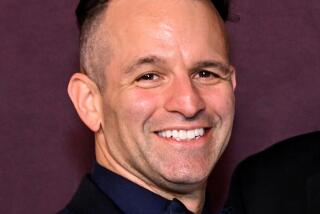2 Ex-Executives of Arco File Suit on Firings
- Share via
Two former executives of Atlantic Richfield Co. filed a $1-million suit here Friday alleging that the company fired them last March as “punishment” for testifying before the federal grand jury that indicted international oil trader Marc Rich for tax evasion.
The complaint, filed in Los Angeles County Superior Court, said a public trial of Rich would produce “revelations of an intimate relationship” between Arco and its former oil trading partner.
Rich has remained a fugitive since before the criminal charges were returned in September, 1983, in New York.
Plaintiffs Frank E. Smith and Joseph H. Wortman were each earning more than $80,000 a year in Arco’s crude-oil trading department when they were fired, according to court papers.
The complaint also named as a defendant Arco attorney John Rathje, and alleged that Smith had received “careful coaching” from the lawyer before Smith testified a year earlier.
Denied Any Wrongdoing
Neither Rathje nor an Arco spokesman could be reached immediately for comment. William F. Dwyer, attorney for the plaintiffs, said the complaint had not yet been served on Arco. In the past, the company has not denied that it sold oil to Rich but has steadfastly denied any wrongdoing.
The indictment of Rich and two of his companies on charges of concealing $100 million in taxable income from oil trading did not make any charges against Arco.
Last October, the two Rich-controlled firms pleaded guilty to 78 felony charges and agreed to pay $200 million to settle the criminal case.
Last March, published reports said that Arco confirmed that Smith and Wortman were fired, along with a third oil trader for the firm, but refused to comment on the reason.
At that time, a federal prosecutor in the Rich case refused to say if any of the fired Arco executives had been interviewed or would be called to testify in the trial of the case.
However, Smith said that one of the prosecutors warned him in 1984 that he was in danger of a possible perjury charge based on his early testimony, according to the suit filed here Friday.
The suit went on to say that the prosecutor’s “hint” prompted Smith to “forsake” corporate loyalty, “abandon the ‘Rathje script”’ and testify in “complete candor” under a grant of immunity.
More to Read
Inside the business of entertainment
The Wide Shot brings you news, analysis and insights on everything from streaming wars to production — and what it all means for the future.
You may occasionally receive promotional content from the Los Angeles Times.








